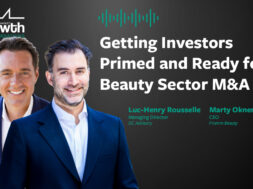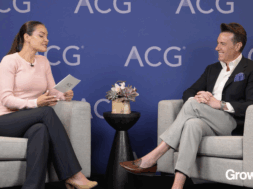Private Equity Takes Stock of the Market— From a Social Distance
Uncertainty amid the coronavirus pandemic has kept most PE investors on the sidelines, even as some hints about the future come into focus.

This edition of Midpoints originally appeared in the July/August 2020 issue of Middle Market Growth. Find it in the MMG archive.
What will the “new normal” look like after the dust settles?
It’s an impossible question to answer as the COVID-19 pandemic rages on. That uncertainty has kept most PE investors on the sidelines, even as some hints about the future have started to emerge.
Of the deals moving forward, minority investments are drawing more interest than they have in the past. Making smaller bets with upside is the current game in town. Majority buyouts are a lot less common. There’s considerable risk to buying companies outright if investors aren’t sure of their health, and it’s even harder to assess their viability from a social distance.
There’s also the question of which sectors will survive intact. Faced with similar levels of uncertainty 12 years ago, many investors opted to wait before buying, only to regret not jumping in sooner. How they proceed this go-around remains to be seen.
Several months of quarantines and social distancing have prompted consumers to reexamine what’s important to them, and new spending priorities could offer clues for the recovery. Many of us are eager to return to restaurants and enjoy a night on the town. Millions of Americans really need a haircut and will appreciate their next concert or sporting event more than ever. Sectors that cater to basic and social needs will bounce back strongly.
At the same time, some types of spending are likely to fall by the wayside, particularly as high unemployment makes consumers more cautious about their purchases. That poses a dilemma for private equity: Investors might have the capital to help consumer discretionary companies, but they can’t be sure of broader spending habits going forward.

Speaking of habits, many of us have developed new ones. E-commerce has surged out of necessity, and it has created new converts. That means more online spending even after the economy reopens. Investors will want to know how strong a company’s online presence is, and how effectively it can market itself to mobile users. They’ll also want to know how quickly those companies can adapt to sudden market pivots if another public health crisis emerges.
Health care investing itself is set for a shakeup. Fear of infection has kept patients away from health care facilities; at the same time, elective and serious procedures alike have been put on hold as resources were directed elsewhere. Without being able to perform those procedures, health care providers can’t make money. There will be a serious need for capital infusions in providers around the country, along with a surge in investments in telemedicine.
Changes are coming throughout the economy. We’ve formed new spending habits and are much more conscious of how quickly things can pivot. Companies have had to do the same. Private equity has an opportunity to help and capitalize at the same time, but they have a lot of data points to sort through before they start.


